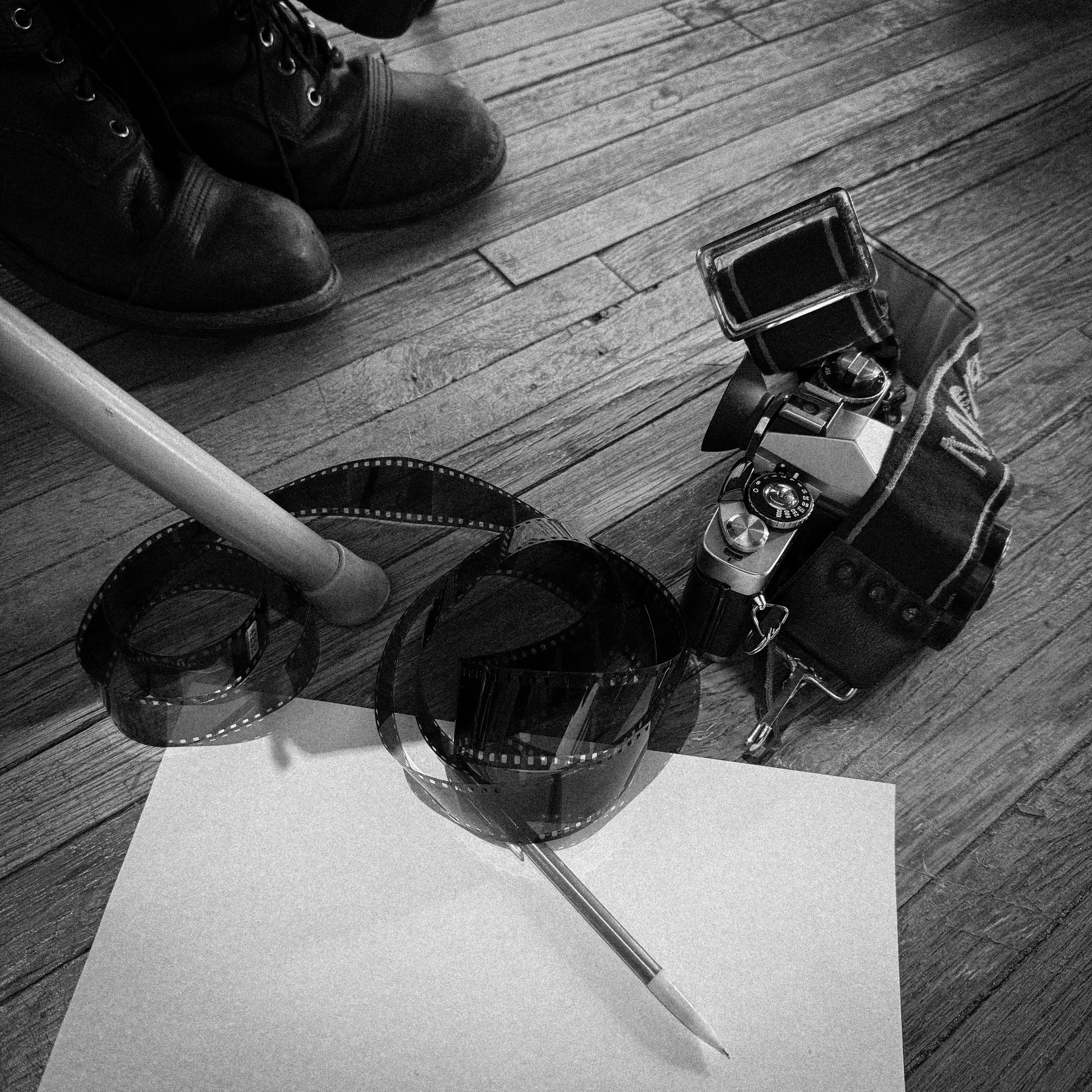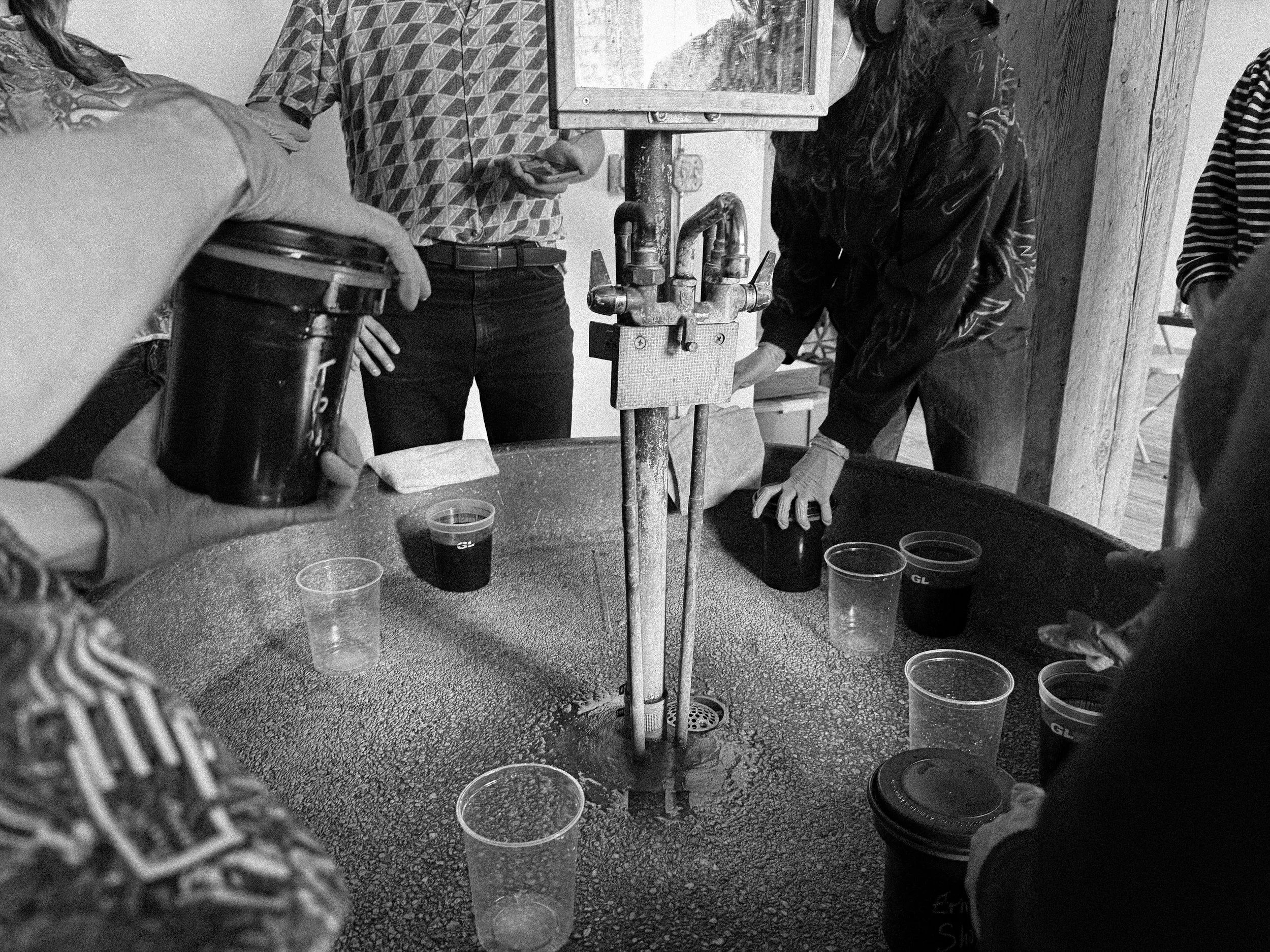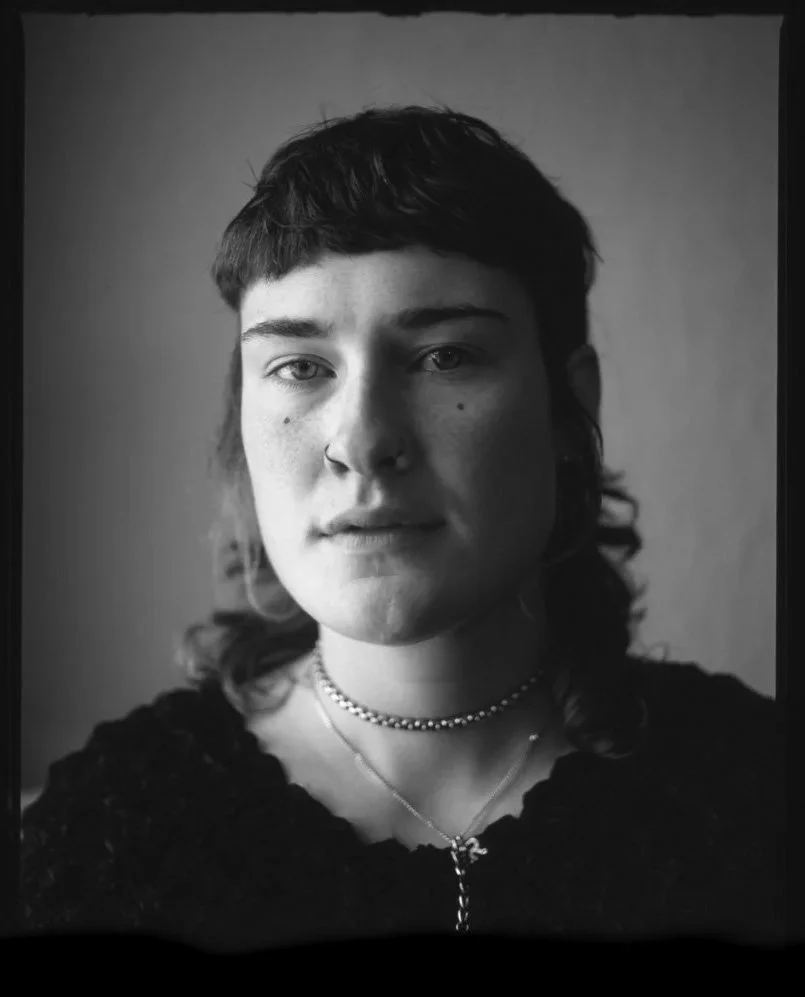
drkrm mpls is an analog photography community where emerging photographic artists practice
creative kinship, analog as resistance, education as freedom, and care as a way of life.
We believe in:
Creativity as kinship: an analog photography community outside a traditional education system where members learn about themselves and their practice through sharing space and dialogue with one another.
Analog as a resistance practice: use the methods of analog photography to resist capitalism’s demands of urgency. Craft is resistance. Process as meditation.
Education as freedom: advance darkroom access, education, exhibitions, and opportunities outside of institutional barriers such as Universities, secondary schools, and other public facilities with high prices of access. Providing access to equipment and space for artists to build their craft, tell their story through images, and critically engage with mentors.
Equity, vitality, and care as a way of life: hosting community conversations that put artistic and cultural production at the center. We are informed by an understanding of mutual aid as direct, reciprocal support where community members provide resources, assistance, and solidarity based on shared needs and mutual respect.
DRKRM_1.0
2020
Beginning in 2020, DRKRM MPLS (pronounced darkroom Minneapolis) operated as a community space in SE Minneapolis run by a collective of friends identifying as POC, Queer, or a combination of the two. Our original facility offered tools and equipment to hand develop and scan film. Open studios were provided and staffed to assist individuals, answer questions, and offer individualized education.
In addition to a public darkroom, DRKRM 1.0 was a community gathering space. Working from models of mutual aid and reparation, past activities include free open studios, a clothing swap, fundraisers, and musical activations. Born during the 2020 Minneapolis Uprising, DRKRM members engaged in conversations around collectivity, reparations, un/learning, racial justice and trauma, healing, abolition, and accountability. DRKRM works to be a space where systematic harms are acknowledged, understood, heard, and acted upon.
After almost three years in operation, DRKRM went mobile due to an untenable rent increase.
DRKRM_2.0
2024-25
In 2024, DRKRM began a concerted effort to increase programming and return to a physical space. Since then we have hosted pop-up events including experimental film festivals and photography workshops.
With the support of the MRAC Flexible Support Grant and fiscal sponsorship through Springboard for the Arts, DRKRM is expanding its mobile programming to include more events and community participation while working toward a physical home to host activations.
DRKRM_future
DRKRM will continue to grow toward building a public wet darkroom to provide space, creative opportunities, education, and jobs to support the analog arts. Our goal is to offer a wet darkroom and film loading facilities, a digital darkroom, a camera lending library, a book lending library, and a photobook store. Programs will include free open studios, photography exhibitions, mutual aid events, film screenings, community conversations, and an artist residency.
join us
Do you have a vision for the future of DRKRM? You can join us in many ways:
Join us for one of our upcoming pop-up events.
Do you know of an affordable Minneapolis location that would be a good home for a wet darkroom? Email us.
Do you have an analog process you can teach without a wet darkroom? Email us.
Do you want to host a mutual aid event or community conversation. Email us.
Do you know of a funding source that would be a good fit for DRKRM? Email us.
Volunteer
Meet the Team
DRKRM MPLS exists as a flexible organization looking to adapt to the needs of its analog community. The team represents those committed to establishing this goal, but does not include the whole breath of those involved or who will be involved in DRKRM’s realization.
-
Founder
Reilly Miller is a multidisciplinary artist-educator who holds a bachelor’s degree in Gender, Women, and Sexuality studies from the University of Minnesota. In January of 2020, Reilly co-founded a community project, DRKRM MPLS, where they serve as the community engagement and studio coordinator to teach fellow, emerging artists how to process their own analog film. Reilly has spent significant time in West Germany, in the cities of Cologne and Münster, learning from mentors and friends how to shape clay, survive within global systems, and how to love in expanse. Reilly organizes intimate public activations above— and under— ground in Minneapolis.
-
Director of Operations and Development
Sarah Sampedro is a Minneapolis-based photographer and educator. With a focus on social documentary photography, her creative practice studies the relationship between interpersonal space and social contracts. You can learn more about her work at sarahsampedro.com.
Sarah has received grants and fellowships from the Jerome Foundation, Minnesota State Arts Board, the Puffin Foundation, Art of the Rural, and the University of Minnesota. She has also chaired the Minneapolis Art Commission and sat on the Minneapolis Public Arts Advisory Panel.
Sarah teaches photography at the University of Minnesota and St. Olaf College.
-
Matthew is an transdisciplinary artist living and working in Minneapolis, MN. Their career has spanned geographic science to small-scale agriculture, a diversity of experience that informs the experimental blending of mediums characteristic of their practice. Images, clay, sculpture, bioart and earthworks all play a part in fostering environments for growth and reveling in the unpredictable fruits of multispecies, collaborative labors. All of this coalesces into explorations of relational identity through the expansive lens of queer ecological theory. Most recently they are researching philosophies of material animacy towards a blurring of the [a]biotic distinction in objects they make. Matthew is an exhibiting artist in the Twin Cities, a returning guest lecturer at MCAD, and an MFA candidate at UMN.






